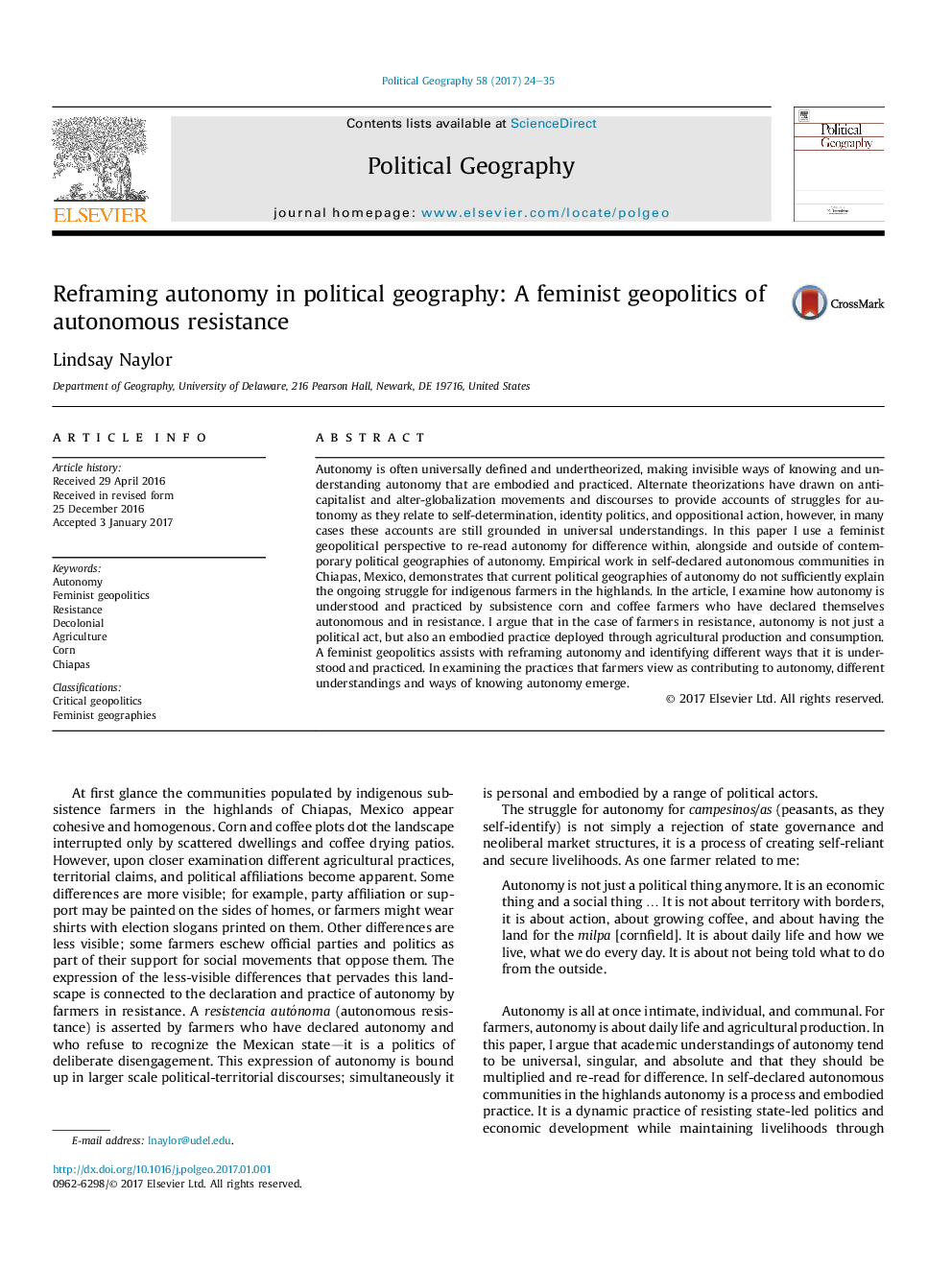| Article ID | Journal | Published Year | Pages | File Type |
|---|---|---|---|---|
| 5118469 | Political Geography | 2017 | 12 Pages |
Abstract
Autonomy is often universally defined and undertheorized, making invisible ways of knowing and understanding autonomy that are embodied and practiced. Alternate theorizations have drawn on anti-capitalist and alter-globalization movements and discourses to provide accounts of struggles for autonomy as they relate to self-determination, identity politics, and oppositional action, however, in many cases these accounts are still grounded in universal understandings. In this paper I use a feminist geopolitical perspective to re-read autonomy for difference within, alongside and outside of contemporary political geographies of autonomy. Empirical work in self-declared autonomous communities in Chiapas, Mexico, demonstrates that current political geographies of autonomy do not sufficiently explain the ongoing struggle for indigenous farmers in the highlands. In the article, I examine how autonomy is understood and practiced by subsistence corn and coffee farmers who have declared themselves autonomous and in resistance. I argue that in the case of farmers in resistance, autonomy is not just a political act, but also an embodied practice deployed through agricultural production and consumption. A feminist geopolitics assists with reframing autonomy and identifying different ways that it is understood and practiced. In examining the practices that farmers view as contributing to autonomy, different understandings and ways of knowing autonomy emerge.
Related Topics
Social Sciences and Humanities
Arts and Humanities
History
Authors
Lindsay Naylor,
